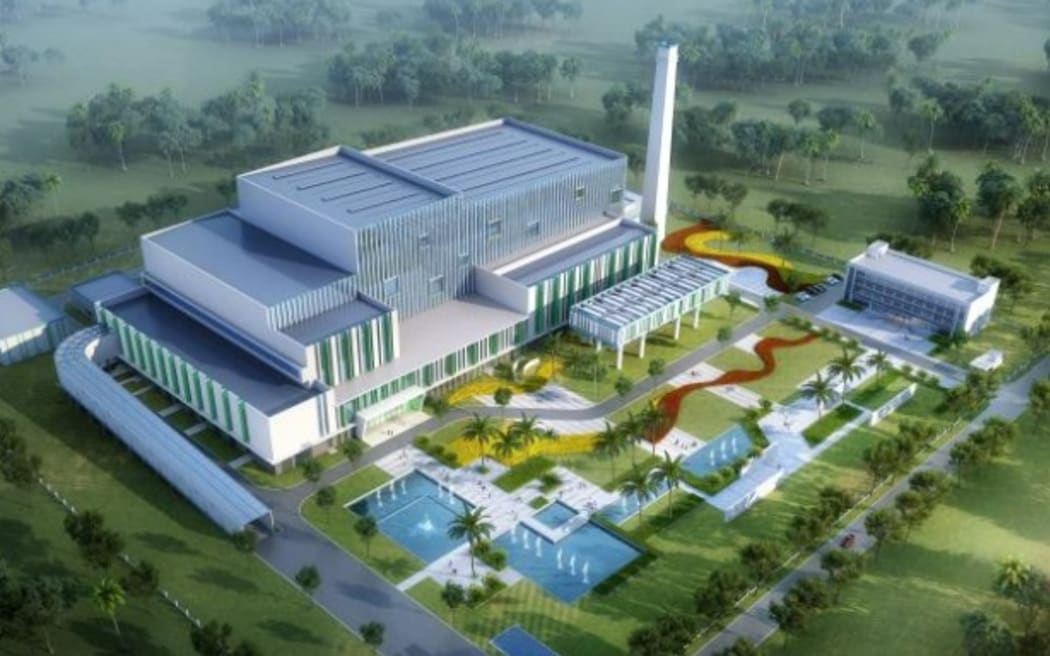
Photo: Supplied/ SIRRL
Central government will take over the consent process for a controversial waste-to-energy plant in Canterbury.
South Island Resource Recovery Limited (SIRRL) had its applications for the plant accepted in May, after two rejections.
If constructed, it would truck in 365,000 tonnes of non-recyclable waste to the town of Waimate annually. The rubbish would then be incinerated by the plant, producing electricity and toxic ash
Soon after the application was lodged, the company, Waimate District Council and Canterbury Regional Council asked Environment Minister David Parker to "call in" the project because of how unique it was - if successful it would be the first of its kind in the country.
Parker agreed the application was of national significance and directed the Environmental Protection Authority to take over the consent process.
The final decision will now be made by the Environment Court.
The company was pleased with the result, SIRRL director Paul Taylor said.
"We are really keen to ensure that community views and concerns are heard and appropriately addressed," he said.
"We're mindful that Project Kea (the waste-to-energy plant) could be Aotearoa's first energy-from-waste plant and SIRRL has reached out to the local community to provide online resources and public engagement forums for questions and discussion."
The plant had received stiff opposition from zero waste advocates who have said the plant does nothing to reduce the amount of waste created.
Some Waimate locals were also against the project, with some previously telling RNZ that information from SIRRL about the plant had been unclear or missing.
A water take application and cultural impact assessment were still missing from the consents lodged, but it could proceed without them for now, the minister ruled.
Outstanding water take documents were expected to be added to the application prior to Christmas, Taylor said, though he did not give a time frame for the cultural assessment.
SIRRL had already provided a number of independent expert reports publicly and as part of its consent application, he said.
The national waste industry body, WasteMINZ, also endorsed the minister's decision.
"Our position has been very clear - we are concerned that resource consents for waste-to-energy plants take up a lot of community and council time and resources as they must quickly become experts in this very technical subject matter," a spokesperson from the Product Stewardship and Behaviour Change Sector Group Steering Committees said.
"We hope that Environmental Protection Authority and the Environment Court can undertake a full and robust resource consent process which fully investigates all implications of a waste-to-energy plant."
But WasteMINZ wanted to see more funding put towards "comprehensive research on the role of large waste-to-energy proposals, particularly incineration, in Aotearoa's low carbon and circular economy future" before the consents were processed.
"Waste-to-energy facilities such as incineration can be in direct contradiction of the move towards a circular economy, as they are focused on disposing waste based on its calorific value, and don't have the capacity to downsize or delay production if waste is reduced through reuse, recycling or composting," the spokesperson said.


